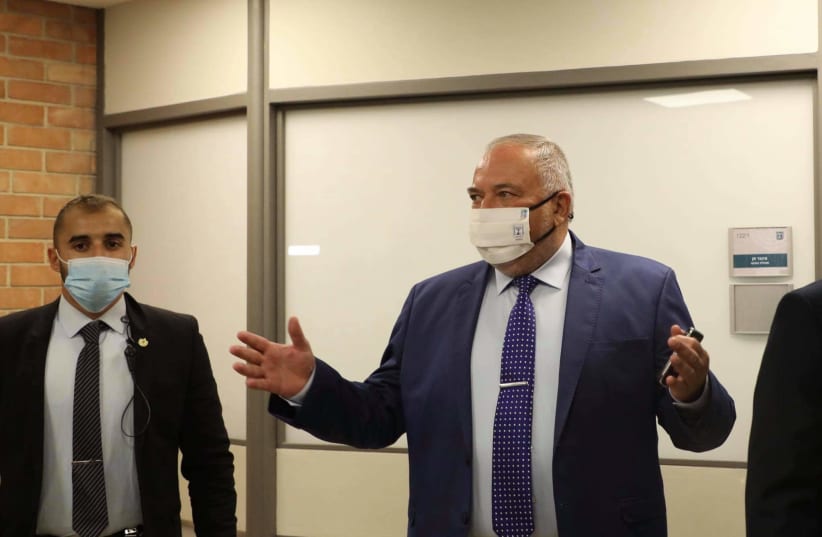In his first address as Israel’s new finance minister on Monday, Avigdor Liberman gave some indication of what he has in store for the future.
The first priority is to pass a “responsible” two-year budget for 2021-2022 with “no games,” Liberman said. The emphasis of the budget will be on 2022 since it most likely will not be approved until after the High Holy Days in September, he said.
Contrary to some media rumors, Liberman said he has no plans to raise taxes in the near future. Economists have recommended that Israel, like most countries in the world, focus on the near future and encourage growth in the short term as the economy recovers from the coronavirus crisis; it should move toward tighter fiscal policies a year or two down the road when the economy is less fragile.
Liberman said he sought to dispel rumors in the haredi (ultra-Orthodox) press that he was looking to settle scores with the community and its leaders.
“I respect the haredi way of life, and I don’t want to interfere in your life or for you to interfere in mine,” he said, adding that it was imperative for the economy that haredim learn core academic subjects and find a profession like other segments of the population so that they will not be dependent on government handouts.
Liberman said he has no animus toward the haredi community, adding that the haredi parties Shas and United Torah Judaism will not join the government and will remain in the opposition for a long time.
Liberman reiterated his intention to stop providing unpaid leave payments (halat) to anyone under the age of 45 beginning July 1.
“The economy has 120,000 job vacancies it needs to fill,” he said. “All the stores are lacking workers. This decision to cancel halat for people under 45, despite all of the complaints from people who will be hurt, is intended for the benefit of the economy.”
The halat benefits in question are different from regular unemployment benefits, which will not be affected, Liberman said. Workers in the tourism field, which has been the worst hit by the coronavirus pandemic, may be eligible for more flexible benefits, he said.
Professional training and placement will also be a top priority to help ensure that everyone has a profession, he added.
Liberman said he has scheduled weekly meetings with Prime Minister Naftali Bennett to discuss economic matters. He expressed confidence the coalition, which has the support of 60 MKs, will secure the required 61 votes to approve the budget when it is ready.
